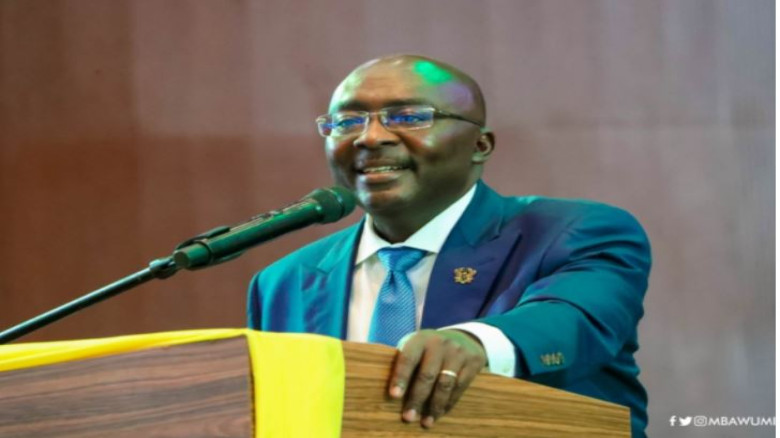Mystery middlemen surface in Ghana’s Gold for Oil deals
Regular readers would recall a recent tweet about whispers floating around Accra’s political alleys about the role of fixers and go-betweens in Ghana’s Vice President’s vaunted “Gold for Oil” initiative.
A bit earlier, we explored the merits and prospects of the whole Gold for Oil program in some detail.
When the above tweet was made, the Chamber of Bullion Traders, a gold merchandising lobby group in Ghana, was aggressively lobbying and briefing about their grievances over the Gold for Oil program and the harm it was causing to their interests.
The government’s decision to hoover up large quantities of gold from the small scale mining sector to support the gold and oil barter agenda could, according to their analysts, spell the end for some of their members and set in train a slow-spiraling death for the entire private gold exporting sector.
It would seem that all the briefings and counter-briefings have roused anti-government media activists who have this weekend drawn first blood.
WADR, a Washington DC-based non-mainstream media outlet strongly opposed to the current Ghanaian government has made a number of allegations corroborating some of the briefings swirling in the undergrowth of Ghanaian political chatter. Their allegations are backed by invoices and trade documents featuring actors who have been mentioned in confidential briefings as architects of the Gold for Oil program.
At the heart of the fascinating schema, as per the briefings, are two highly secretive and super-discreet investment bankers and dealmakers who also double as on-off financial advisors to former British Prime Minister, Tony Blair, himself a favourite Advisor to Ghana’s Vice President.
The two men – Reyhaan Aboo and Prashant Francis – are principals of London based Portman Partners and UAE domiciled Alphastream. They, especially Mr. Francis, were key enablers of Prime Minister Blair’s now dissolved, and once highly scrutinised, Firerush Ventures.
Alphastream’s key operatives are JP Morgan alumni who are well connected with the American investment bank’s powerful Ghanaian network, with members ranging from fund industry gurus to a former junior Finance Minister.
Alphastream, with primary investors in a UAE Sovereign Wealth Fund, brands itself as a multi-commodity royalty streaming company. The same business the ill-fated Agyapa entity attempted to enter.
According to the briefings, now corroborated by documents leaked to WADR, the Bank of Ghana has signed a secret agreement to sell $1.1 billion worth of gold and an unspecified quantity of silver through Alphastream to obtain dollars for procuring refined petroleum products.
It is absolutely unclear what specific value Alphastream adds in a simple gold export transaction but theories, mostly unsavoury, abound.
Regular readers would recall our recent tweet that Russia’s Litasco, under pressure from the EU’s expanding sanctions regime following the Ukraine invasion, has set up in the UAE and is exploring creative trades. Litasco is reported to have brought in the first consignment of gasoil blends from the Baltic Port of Vystosk under the Gold for Oil program.
Given Litasco’s reputation for “crude oil for refined products” deals, most notably in Nigeria, its involvement in Ghana’s barter program was unsurprising. Yet, impeccable sources insisted that they had not taken gold for payment.
The shadowy intrigues surrounding the very first transaction cast a harsh light on the opacity, lack of forthrightness, poor policy grounding, parliamentary sidelining, and zero accountability beclouding the entire Gold for Oil program.
Such murkiness could only deepen the clouds of suspicion and provide more fodder for the whispering campaign. One mystery above all drove the intense chatter: how had Litasco been paid?
The leaks to WADR shed light on this strand of the affair and ties some of the loose ends of earlier analysis. The money no doubt came from StoneX Commodities DMCC, part of the $1.7 billion a year trading wing of the StoneX Group, whose precious metals unit, especially the Girish Surendran trading desk, has been particularly aggressive of late in exploring multi-sided transactional solutions.
Mystery middlemen surface in Ghana’s Gold for Oil deals
StoneX is a diversified commodities solutions company. Chart Source: StoneX
According to WADR, 502 kilograms of gold, out of an Alphastream quota of 18 tons, plus an unspecified quantity of silver have been freighted on Emirates airlines to StoneX’s refinery in the UAE.
Based on proforma invoice pricing, the total value of the shipments should amount to about $33 million. Roughly equivalent to the approximately $32.8 million that 41000 metric tons of Rotterdam gasoline blend would have cost on CIF basis using the relevant Argus pricing benchmarks.
Mystery middlemen surface in Ghana’s Gold for Oil deals
January Pricing Benchmarks for White Products. Source: Argus
In short, as many people have said in the past, the whole Gold for Oil program simply entails diverting gold from Ghanaian private sector players and selling through politically connected middlemen for dollars in Dubai. Then paying a Russian trading firm that already buys crude from Ghana and, finally, netting off in spot settlements. Far from the revolutionary gameplan of recent government narratives. At first approximation, the scope for backhand fees and hidden premia is, unfortunately, massive.
Had this convoluted ring-a-ring-a-roses been equivalent to a conventional oil trade intermediated by the usual Ghanaian Bulk Distribution Companies (BDCs), we could have put the whole thing down to the Ghanaian politician’s need for populist dramatics. But the multiple layers of related parties playing middlemen for a cut and the thick cloud of opacity ring serious alarm bells.
Some of the claims of WADR are hard to follow and the organisation’s key activists use unconventional scales and conversion rates (examples: suggesting that “129 pounds = 1kg” and that 1 pound of local gold costs 5000 GHS, both of which are erroneous). But the general concerns about shadowy brokers have been raised by others far more steeped in the commodities industry, and fears of potential losses for Ghana are reasonably grounded.
The slow rate of gold mobilisation, no doubt funded by cash printing with inflationary potential, and the multiple hoops of exchange rate and credit exposures, all come together to suggest a tottering wreck of a scheme that may be too clever by half. There is, after these revelations, no rational basis for holding on to a belief in the scheme strengthening the Cedi or leading to lower fuel prices at the pump.
Mystery middlemen surface in Ghana’s Gold for Oil deals
Before further leaks and more confidential briefings ensue, we strongly urge the government of Ghana to publish every piece of information relating to the various roles played by the Bank of Ghana, Precious Minerals Marketing Corporation, Litasco, StoneX, Alphastream, and the secret local gold aggregator muscling out the established gold traders and exporters in this strange procurement scheme.
Why should every policy of government become a magnet for drama and controversy?
Myjoyonline.com











Leave A Comment